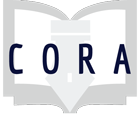This library class was designed for the courses Scene Design and Technical Theatre. However, it can be adapted and used for courses that make use of digital archives and other types of digital objects to support their arguments.
Assignments
The SIFT* & PICK approach to evaluating sources adapts and builds on Mike Caulfield's SIFT method to help students select quality sources by practicing:
How do you detmerine whether your research has had an impact? This lesson plan covers journal and author metrics such as Journal Impact Factors, H-index, citation counts, and altmetrics. After a mini-lecture of the definitions of these metrics and how to find them using Journal Citation Reports and Google Scholar Metrics, students create a researcher profile to position themselves as scholars.
Supplies needed: Printed researcher profile handouts.
This activity takes approxiately 30 minutes.
ChatGPT is an generative artificial intelligence chatbot released in November 2022 by OpenAI. What are the opportunities in using this tool to teach library instruction? This document highlights various ways to engage with learners in critically analyzing ChatGPT (version GPT-3) and its responses through the ACRL Frame: Information Creation as a Process.
This lesson was created to help further discuss issues surrounding plagiarism after a quick introduction at orientation. It was created for pharmacy PhD students but I do believe it could be useful for many learner types. A large focus on this lesson was why it is important not to plagiarize with emphasis on oppression through traditional citation and review practices. Inspiration and/or content obtained from: Conner-Gaten, Aisha.
This algorithmic literacy workshop puts a new spin on media literacy by moving beyond fake news to examine the algorithms that shape our online experiences and how we encounter information in our everyday lives.
This sample activity corresponds to a chapter in the upcoming (2022) ACRL title: Teaching Critical Reading Skills: Strategies for Academic Librarians.
It's important to credit others when you use parts of their work. Complete this tutorial to learn when and how to best give credit to the work of others.
